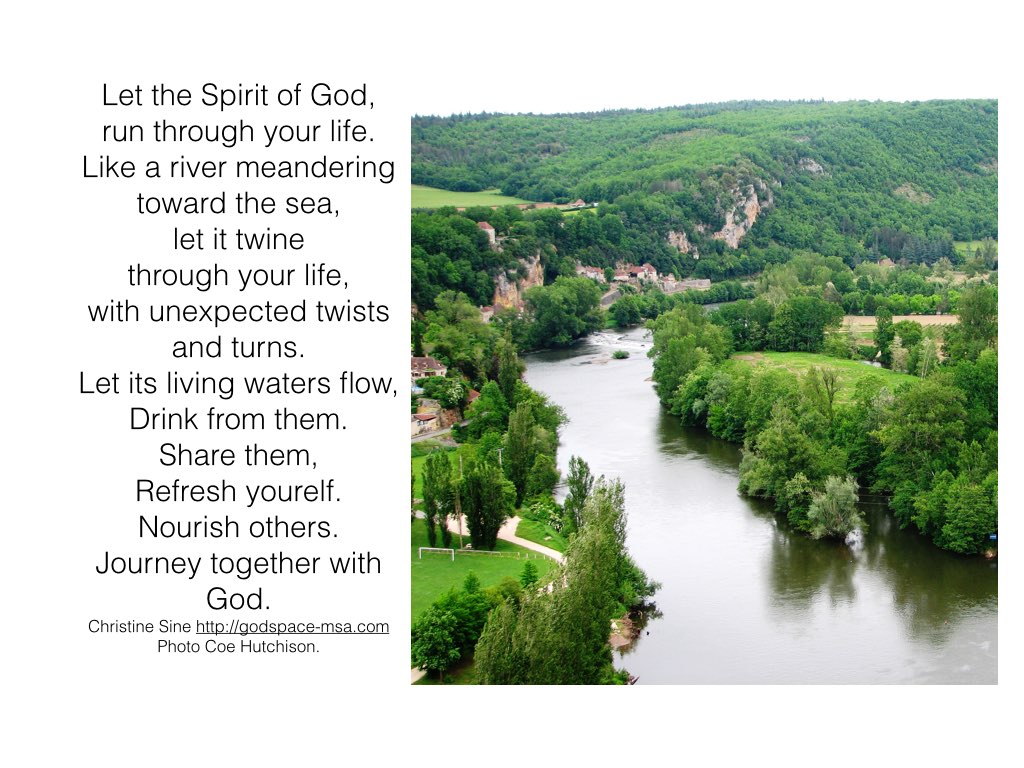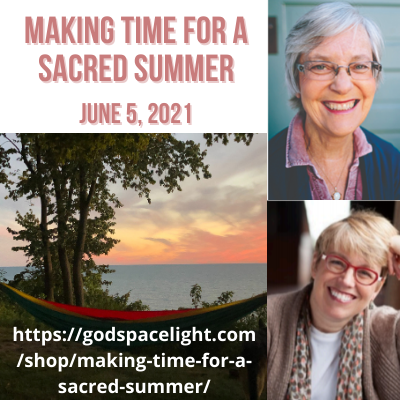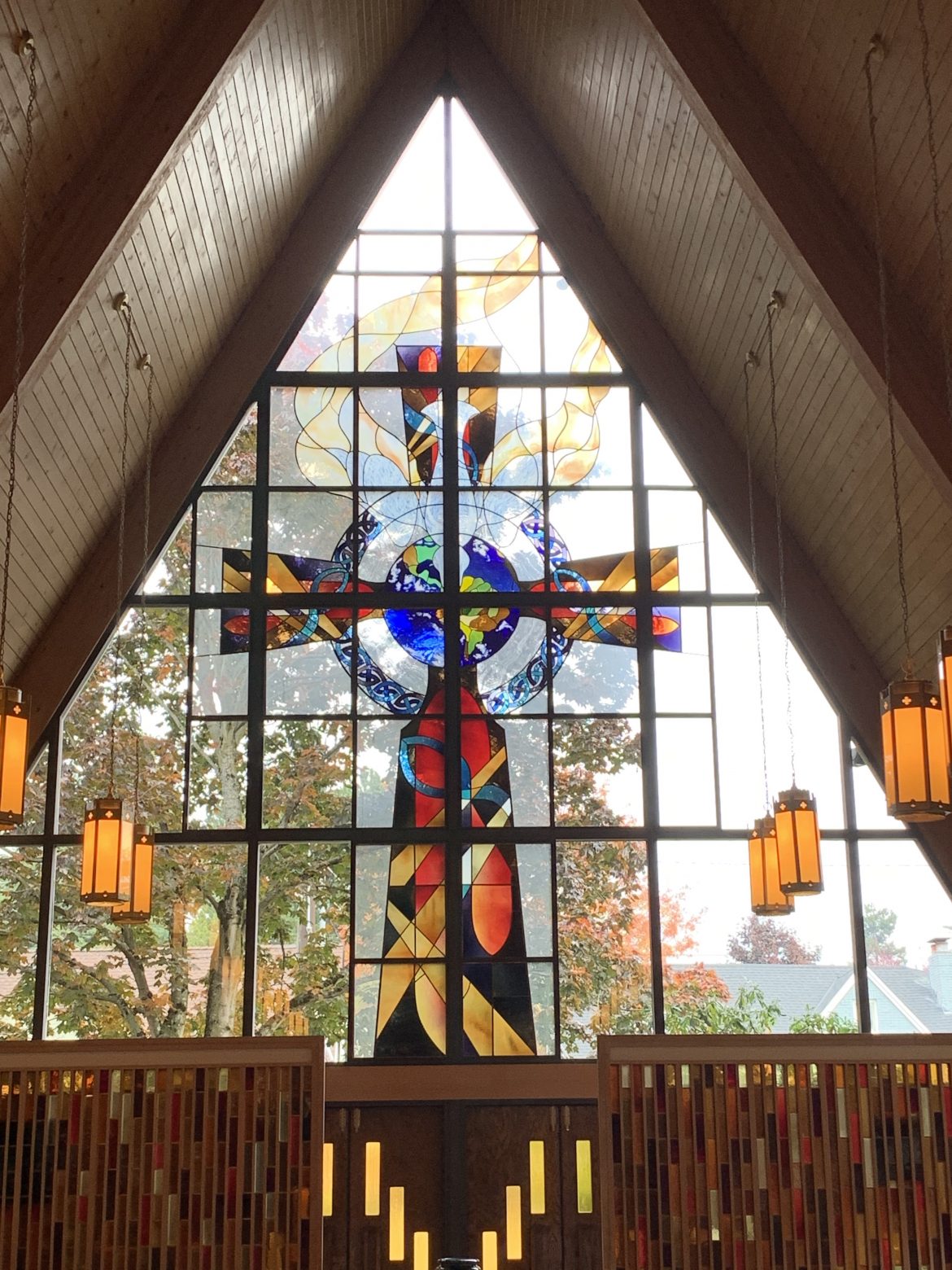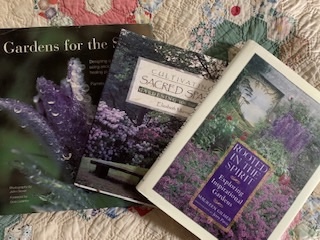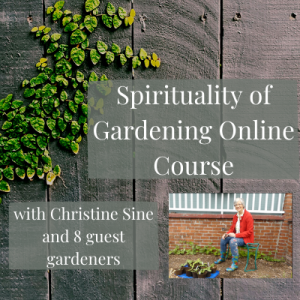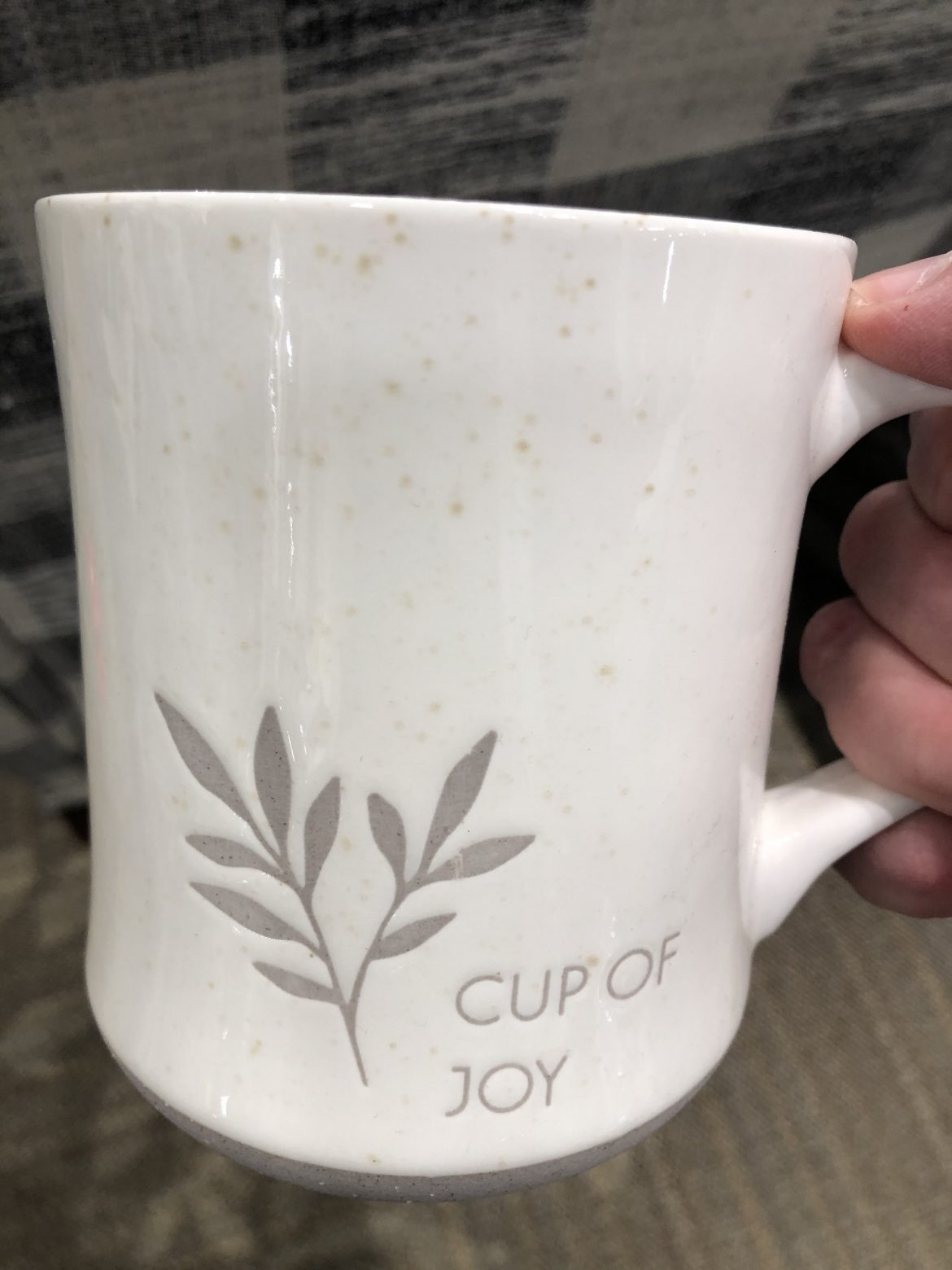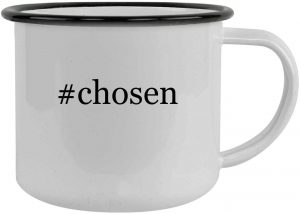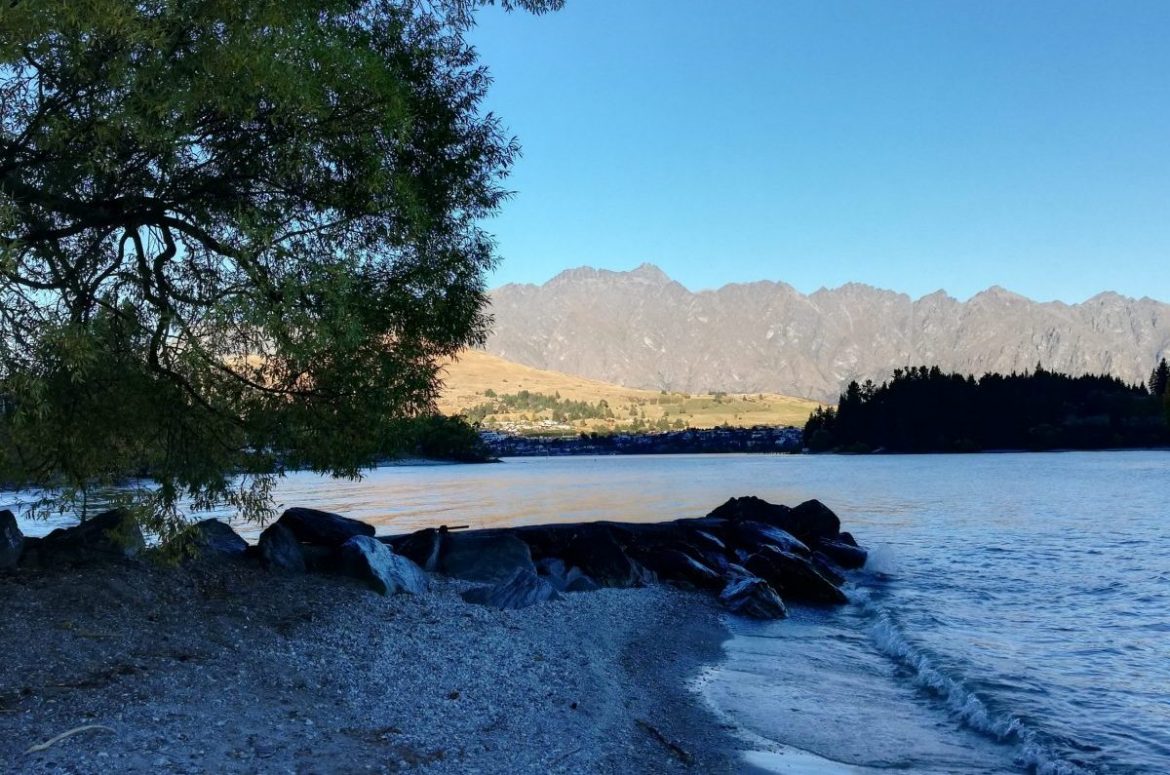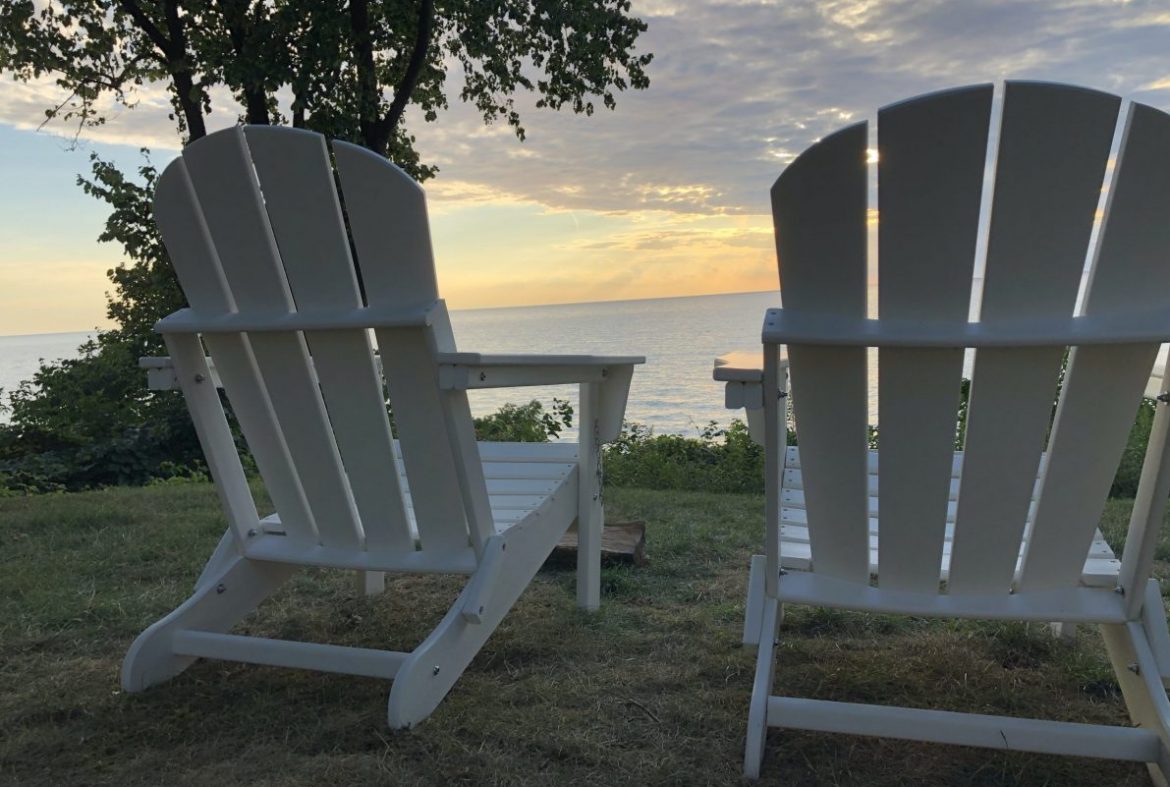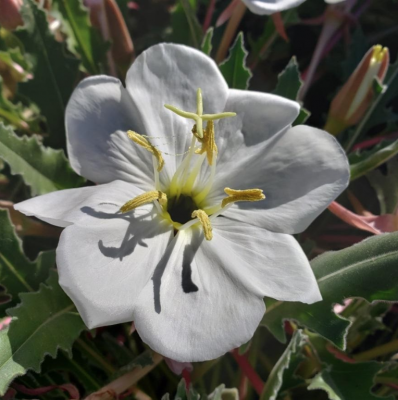by Christine Sine
Over the last few weeks, my husband and I have been revisiting Time Team, a wonderful British programme in which the team takes three days to explore an archeological site. Often these sites are of castles that date back to Medieval times. These castles are usually built on top of the most prominent hill in the area and usually close by a river for easy access. In the center of the castle is usually the remains of a high tower, a tower that would have given a spectacular view all around the area enabling the occupants to see exactly what was happening and help them prepare for attacks from their enemies.
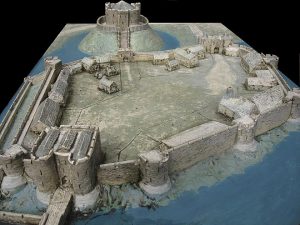
A reconstruction of York Castle in the 14th century, showing the castle’s stone keep (top) overlooking the castle bailey
As I watched one of these programmes, it was as though my brain kicked into gear. I was reminded of the impact these words of Ps 32:8-9 had on me as I wrote last week’s post:
I hear the Lord saying, “I will stay close to you,
instructing and guiding you along the pathway for your life.
I will advise you along the way
and lead you forth with my eyes as your guide.
Then shortly after that, a friend sent me a link to Ps 94:23 because she felt that the second part of the verse held a special word for me.
For you are my true tower of strength,
my safe place, my hideout, and my true shelter.
At first, I could not see how these verses related to each other but as I prayed and meditated this morning, the image of that high tower in the Time Team episode came into my mind and I found myself bringing together these two images. The pathway of God is like a river, I thought. It is never straight and it is not always obvious. Sometimes it flows rapidly and dangerously as down a series of rapids, at other times it flows gently and peacefully, as when it meets a wide open plain. Sometimes it meets a large obstacle like a rock. It doesn’t try to go through it but rather allows itself to be diverted, creating a new pathway around the obstacle.
If we stand beside the river we are only able to see a short distance and often our view is obstructed completely by the trees that line the river. We have no idea what lies ahead or what dangers the river might hold. From a high tower, however the pathway is clear. I can see what lies both ahead and behind and can be prepared for the enemies that might threaten to attack me.
God, I realize, is like that high tower, that all seeing tower overlooking my pathway which I am increasingly aware is like a river meandering through the landscapes of this world. From the top of that tower God’s eyes are able to guide and protect me even when I am down at the river’s edge unable to see ahead or behind. When I am at my most vulnerable God’s eyes watch over me, and if I am sensitive to God’s voice, then I will be able to retreat from the water’s edge and find shelter whenever there is danger close.
This was such reassuring imagery for me this week and out of my reflections, I drew this doodle and the wrote a poem. This kind of creativity is often the result of times of meditation for me. I find that as I draw and write that the words resonate in my mind and take residence in my heart.
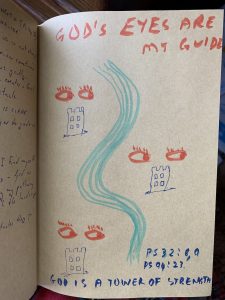
Gods eyes on me doodle
My life twists and turns
through the landscapes of this world.
Like a river flowing
through the curves of time.
Tumbling fast, meandering slow,
Looping back upon itself.
Time lost, time gained,
Aware but not aware
Of what passes.
Yet always
all seeing, all knowing
from a strong and mighty tower
God’s eyes guide me.
Holding me close
Within the banks of the flow.
© Christine Sine 2021
What is Your Response?
Take a few minutes to reflect on the pathway that God is guiding you along. Sit with your eyes closed and imagine that God’s eyes are watching over you from a high tower. How does that make you feel? What areas of vulnerability in your life might this give you reassurance in? Is there something that God might be asking you to do in order to find the protection that tower could provide? Perhaps as you meditate, like me you might like to draw a doodle or write a poem. Or you might like to create a collage or express you creativity in some other way. All of these responses open us up to God’s presence and guidance of us.
Enjoy!
Sign up now for this virtual retreat experience with Christine Sine and Lilly Lewin on June 5, 2021 from 10am to 1pm Pacific Time (Convert time zone here)
Here is this week’s contemplative service in the style of Taize from St Andrew’s Episcopal Church in Seattle.
A contemplative service with music in the style-of-Taize. Carrie Grace Littauer, prayer leader, with music by Kester Limner and Andy Myers.
Permission to podcast/stream the music in this service obtained from One License with license #A-710-756
I love gardening, and find that it is a wonderful place to connect to God and find refreshment and healing for my soul. For many of us this connection is enhanced by the creation of special spaces that are specially designed to strengthen these connections. Even the small contemplative gardens I create to sit on my desk provide inspiration, refreshment and at times healing as I sit and meditate on them. I am one of a growing number of people around the planet that finding themselves drawn into the contemplative nature of gardens. I hope that this list of books will help all of us enter more deeply into this aspect of gardening.
Creativity, Contemplation and Gardening
- Inheriting Paradise: Meditations on Gardening by Vigen Guroian. A delightful collection of garden meditations from an Orthodox Christian perspective.
- Gardens for the Soul by Pamela Woods. A beautifully illustrated book that provides great insights on designing outdoor spaces using ancient symbols, healing plants and Feng shui.
- Rooted in the Spirit: Exploring Inspirational Gardens by Maureen Gilmer. This is another beautifully illustrated and very practical book that helps you link your gardening to spirituality.
- Cultivating Sacred Space – Gardening for the Soul by Elizabeth Murray. This book invites us into sacred gardens at every season giving inspiration and ideas for our own sacred spaces.
- Everyday Sanctuary A Workbook for Designing a Sacred Garden Space by Jessi Bloom. This is an informative workbook that helps you design sacred space in the garden.
- Landscapes of Prayer by Margaret Silf. A beautiful book of prayer reflections exploring 9 different natural landscapes
- Walking in Wonder: Eternal Wisdom for A Modern World by John O’Donohue. A treasure that celebrates the beauty and mystery of everyday things.
- Reclaiming the Wild Soul: How Earth’s Landscapes Restore Us to Wholeness by Mary Reynolds Thompson. A journey into five great landscapes of our world that reconnects us to a rich source of wisdom, healing and wholeness.
- All Creation Waits: The Advent Mystery of New Beginnings by Gayle Boss. Twenty-five meditations reflecting on how wild animals adapt when darkness descends.
- Morning Altars by Day Schildkret. The best process I have found for contemplative practice with nature.
- Earth, Our Original Monastery by Christine Valters Painter.
- Farming While Black by Leah Penniman. Not explicitly Christian, but makes connections between racial and environmental justice/reconciliation.
- To Garden With God by Christine Sine. This book may be getting old but it is still one of my most popular A good read as preparation for the garden season.
Other Books
- The Sanctuary Garden: Creating a Place of Refuge in Your Yard or Garden by Christopher Forrest McDowell and Tricia Clark-McDowell
- When the Trees Say Nothing: Writings on Nature by Thomas Merton
- Braiding Sweetgrass: Indigenous Wisdom, Scientific Knowledge, and the Teachings of Plants by Robin Wall Kimmerer
- The Inward Garden: Creating a Place of Beauty and Meaning by Julie Moir Messervy
- The Pursuit of Paradise by Jane Brown
- Monastic Gardens by Mick Hales
- Upstream by Mary Oliver
- When Breath Becomes Air by Paul Kalanithi
- The Well Gardened Mind by Sue Steward-Smith
Sometimes I need to be reminded of the amazing love of Jesus. Sometimes I need to remember that I am not a servant, but I’m a friend of Jesus. You and I are not just servants, but we are chosen by Jesus to be cherished friends! Jesus wants us to be with him, to stay connected to him just like branches are to a vine so that we can have joy! And by abiding in Jesus and his great love, this love will be contagious and other people will want to get to know the Source. This week’s gospel reading and our EASTER CUPS will help us drink in this great love and help us remember! So grab a favorite mug and join in as we read and pray with John 15.
9 “As the Father has loved me, so have I loved you. Now remain in my love. 10 If you keep my commands, you will remain in my love, just as I have kept my Father’s commands and remain in his love. 11 I have told you this so that my joy may be in you and that your joy may be complete. 12 My command is this: Love each other as I have loved you. 13 Greater love has no one than this: to lay down one’s life for one’s friends. 14 You are my friends if you do what I command. 15 I no longer call you servants, because a servant does not know his master’s business. Instead, I have called you friends, for everything that I learned from my Father I have made known to you. 16 You did not choose me, but I chose you and appointed you so that you might go and bear fruit—fruit that will last—and so that whatever you ask in my name the Father will give you. 17 This is my command: Love each other.
DRINKING FROM THE CUP OF CONNECTION:
PICK UP YOUR CUP… In JOHN 15, Jesus is talking to his disciples about abiding in him. He wants his followers to stay connected to him like branches are connected to a vine. And this connection is all about his love flowing in us and through us.
As you HOLD Your Cup… imagine connecting to Jesus. Imagine Jesus filling up your cup with his great love for you.
How does it feel to know that Jesus wants you to stay connected to him? As you drink from your cup today, consider the things that help you stay connected to Jesus… Prayer, getting out in nature, being with or talking to friends, listening to music, working in the garden, taking a run, what else? As you drink from your cup, talk to Jesus about this. Plan a time this weekend to do the things that connect you to the Vine.
DRINKING FROM THE CUP OF JOY:
In the Passion Translation of John 15:11, Jesus says: “My purpose for telling you these things is so that the joy that I experience will fill your hearts with overflowing gladness!”
Jesus wants his Joy to be in us! What does the Joy of Jesus really look like? How does this make you feel?
PICK UP YOUR CUP. HOLD IT and consider how you are feeling today. Is your heart overflowing with gladness, or have you been discouraged by the harsh things of life? Maybe like me you have had a bad week. Maybe you’ve felt the weight of things like covid in India, or you have friends who are hurting or you’ve been drinking from a cup of frustration and discouragement rather than a cup of joy. Maybe you’ve just gotten busy and haven’t taken the time to consider drinking from a cup of joy!
PICK UP YOUR CUP. Talk to Jesus about where you really are today. He isn’t afraid of your emotions. He loves you however you are today!
Fill up your cup. Fill it to the brim! Drink in some JOY!
Barbara Haines reminded us at thinplaceNASHVILLE that the Joy of the Lord is our strength and we can all have better days when we choose joy!
What if you and I chose to wake up each day this week and drink from a cup of JOY? How would our day be different?
Remembering we are CHOSEN
I’ve really missed hanging out in coffee shops and meeting friends for coffee. I’m looking forward to this as we all get vaccinated. While we are waiting, Let’s plan a coffee date with Jesus!
Imagine Jesus sitting across from you, you might even pour him a cup just like we set a place for Elijah at Passover.
What do you talk about? What if you just sat and listened? What does Jesus say to you?
“I’m no longer calling you servants because servants don’t understand what their master is thinking and planning. No, I’ve named you friends because I’ve let you in on everything I’ve heard from the Father.”
What do you need to hear from Jesus today? Talk to him about what’s going on in your life just like you would your friends.
“You did not choose me, but I chose you and appointed you so that you might go and bear fruit—fruit that will last—and so that whatever you ask in my name the Father will give you. This is my command: Love each other.”
How does it feel to know that Jesus has chosen you?
HOLD YOUR CUP…Imagine it has the hashtag #CHOSEN printed on it!
Drink in the love of Jesus today. Drink in your belovedness. Drink from your cup and REMEMBER THAT YOU ARE CHOSEN! Remember that loves us so we can go and love others.
©lillylewin and freerangeworship.com
Sign up now for this virtual retreat experience with Christine Sine and Lilly Lewin on June 5, 2021 from 10am to 1pm Pacific Time (Convert time zone here)
poem and photos by Ana Lisa de Jong,
I want you to write yourself a love note.
A story of the spirit that lives in you,
rises up,
defies opposition.
I want you to write the inverse of everything
you’ve been told that hurts,
limits,
keeps you sold out to other’s opinions.
Who do you know,
even amongst those who love you,
who see you truly,
who do not see you through a lens imperfect.
You are everything to the one
who perceived you before you stood up,
this one calling, every day, your name,
that you might live unto yourself.
And know that when the darts come
out of the night,
you have a shield, and a counterpart
to every word that isn’t true.
That you have comfort,
when strength is in short supply,
encouragement when
to show up smiling takes every ounce of will.
I want you to write yourself a love note.
From the spirit who lives, breathes in you,
stands up to bless you,
declares against
all that would hurt, intentionally,
inadvertently,
that the words echoing,
might die out on the tongue,
dissolve before they reach the ear,
meet the light,
come undone.
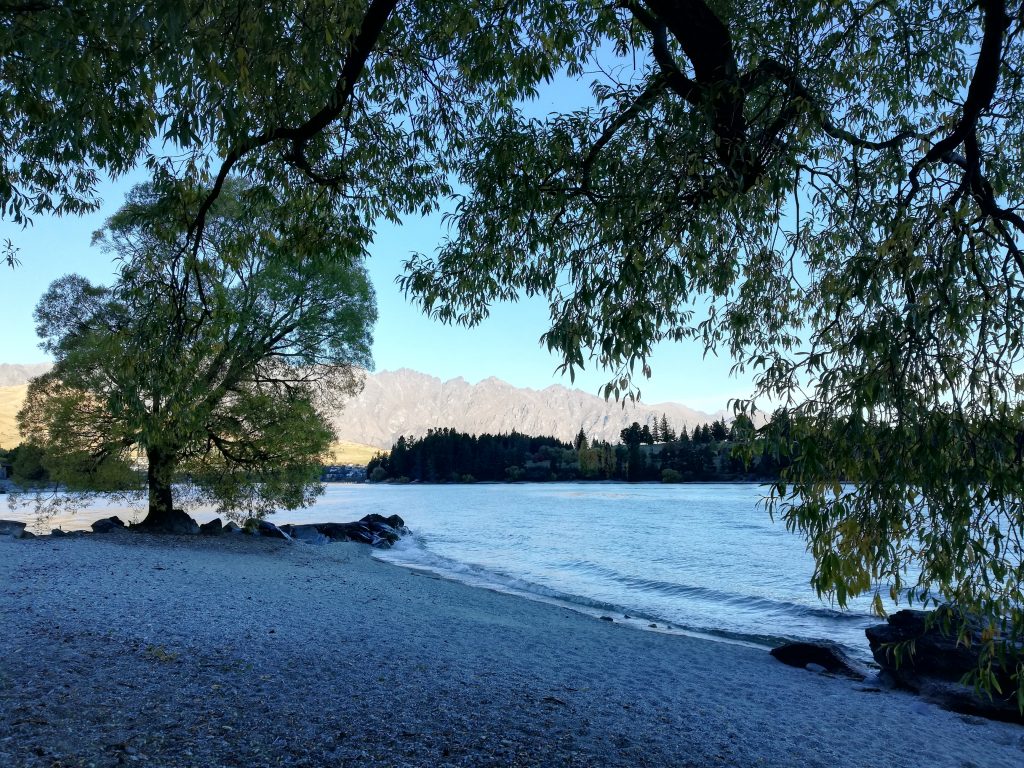
by Ana Lisa de Jong
For poems by Ana Lisa, check out LivingTreePoetry.com.
This new bundle is on sale until May 11th and includes our best selling book, To Garden with God and The Gift of Wonder Prayer Cards.
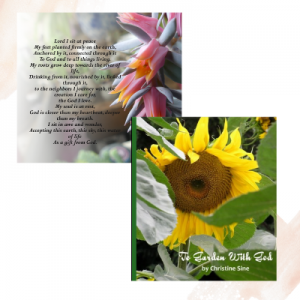
by Christine Sine,
Last week, Lilly Lewin, Lisa DeRosa and I had a wonderful brainstorming session for our upcoming retreat Making Time for a Sacred Summer. We got more and more excited as the Zoom call progressed and we delved into our memories of summers past and what had made them special for us. “I think shells on the beach, Lilly thinks suntan lotion”, I commented at one point, awed at the broad array of summer symbols that can gain spiritual significance for us when we stop and think about them. We talked about the spontaneity of summer spirituality and how the stirring of our senses draws us closer to God.
What we realized is that the pathway between the stirring of our senses and the creation of spiritual practices that add meaning to our summer experiences and connect us in special ways to God is not always obvious. We all need help to shape our experiences into practices of refreshment and renewal. We need to stop, listen, learn, and create. That is what we will focus on in the upcoming retreat: journalling, praying and forming new tools that will help make this into a very spiritual summer.
Last week, I commented that the pandemic has changed the way we viewed sacred space and sacred time. We are hungering for intimate times with God. We all need refreshment. We all need to refuel after a crazy year.
What this last year has taught me is that God can convert any seasonal symbol into a spiritual practice. As I worked on my Meditation Monday: Don’t Turn Away When the Blossoms Fade. I realized that even petals strewn on a path or blossoms dying on a tree can be sources of inspiration.
So I invite you to join us for a very special start to the upcoming season. Allow us to help you plan for a sacred summer or a sacred winter and enrich your relationship with God.
Virtual retreat experience on June 5, 2021 from 10am to 1pm Pacific Time (Convert time zone here)
Feature photo above by Lilly Lewin.
by June Friesen,
Nature’s Gift of Love
One of my hobbies is photography. In the past year, especially as I have been out in nature, God has often gifted me with surprises in at least one or two photos every week. The beauty of these gifts is that God also brings to mind a Scripture or two that inspires my Christian faith. This photo was taken in a Botanical Garden here in Phoenix, Arizona where I live and when I arrived home, my eyes immediately saw a cross, but then off to the right, a stamen that appeared as praying hands. Yes, when we are mindful of God’s beauty everywhere He is able to bless us and remind us that He is watching over us as well as the whole of creation with love. I was reminded of a few verses in Galatians 2 as well.
Galatians 2:19-21 (MSG)
I tried keeping rules and working my head off to please God, and it didn’t work. So I quit being a “law man” so that I could be God’s man. Christ’s life showed me how, and enabled me to do it. I identified myself completely with him. Indeed, I have been crucified with Christ. My ego is no longer central. It is no longer important that I appear righteous before you or have your good opinion, and I am no longer driven to impress God. Christ lives in me. The life you see me living is not “mine,” but it is lived by faith in the Son of God, who loved me and gave himself for me. I am not going to go back on that. Is it not clear to you that to go back to that old rule-keeping, peer-pleasing religion would be an abandonment of everything personal and free in my relationship with God? I refuse to do that, to repudiate God’s grace. If a living relationship with God could come by rule-keeping, then Christ died unnecessarily.
These verses hold out hope for God’s followers. It is a hope that releases one from the bondage of rule keeping. It is a hope that gives peace in the midst of or instead of having to please others. It is a hope that one places firmly in Christ believing that daily living in this world is possible as one embraces Him 24/7 to the best of one’s ability.
THE CROSS AND THE PRAYING HANDS
The gift of God’s love is so pure and holy,
It is unflawed, freely given without restrictions or limitations,
The cross is a symbol to the world of this love God holds in His heart for all –
It is the place where God was poured out in sorrow and sadness
For all of humanity in their selfishness and pride.
The beauty that arises from the cross carries a purity –
A purity for the human heart that embraces God’s victory over sin –
A purity that may not necessarily show forth in a perfect life here on this earth –
But a purity that will be realized in eternity when with Jesus His followers one will live.
The cross – as it stands vertically between God and this earth –
The cross bar – as it reaches from one side to the other –
The cross – as it encompasses the whole of the universe –
The cross – as it is secured to this earth –
The cross – it continues to call today to you and to me –
The cross – God’s eternal message of forgiveness to all of humanity.
Yes, the cross is a symbol of godly faith –
And God desires that it become an active symbol
Alive within each one of His followers –
Living of life of
“Loving God, loving self and loving everyone else,”
As His Son demonstrated to each one of us that day on the cross.
So, as we clasp our hands in prayer –
Let us allow God to enwrap our hands with His –
Let us receive His infusion of forgiving love graciously
Knowing that He is gifting it to us to then go and readily share with the world.
So as the flower here is widely opening its petals in beauty for all who pass by –
Let you and I also widely open our hearts and our hands in love to others as they pass by –
May our lives reveal the beauty and power of a life that has been changed
By the power of the cross and a yielded life to God Almighty.
Amen and amen.
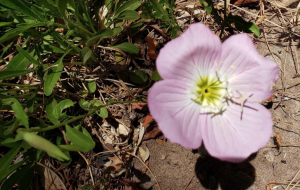
Photos taken by June Friesen
This new bundle is on sale until May 11th and includes our best selling book, To Garden with God and The Gift of Wonder Prayer Cards.

As an Amazon Associate, I receive a small amount for purchases made through appropriate links.
Thank you for supporting Godspace in this way.
When referencing or quoting Godspace Light, please be sure to include the Author (Christine Sine unless otherwise noted), the Title of the article or resource, the Source link where appropriate, and ©Godspacelight.com. Thank you!

